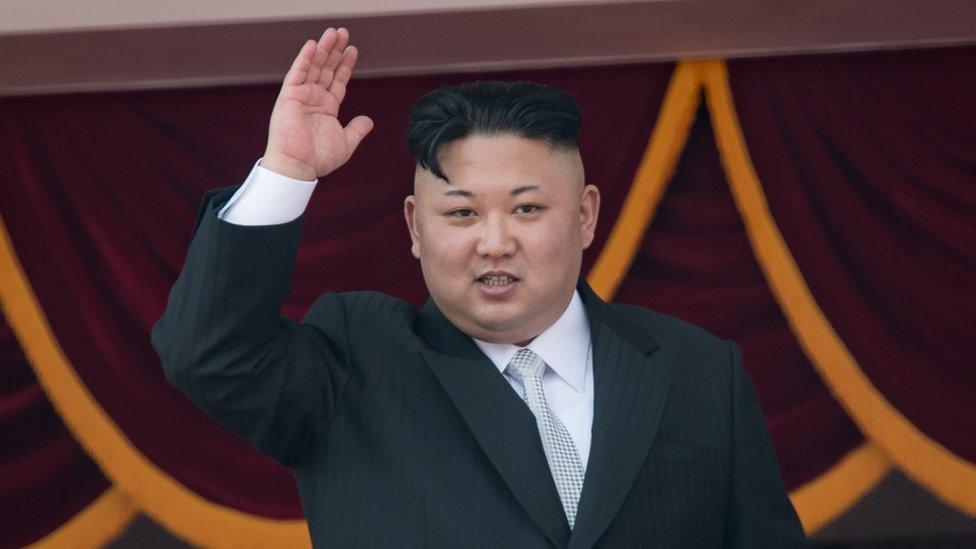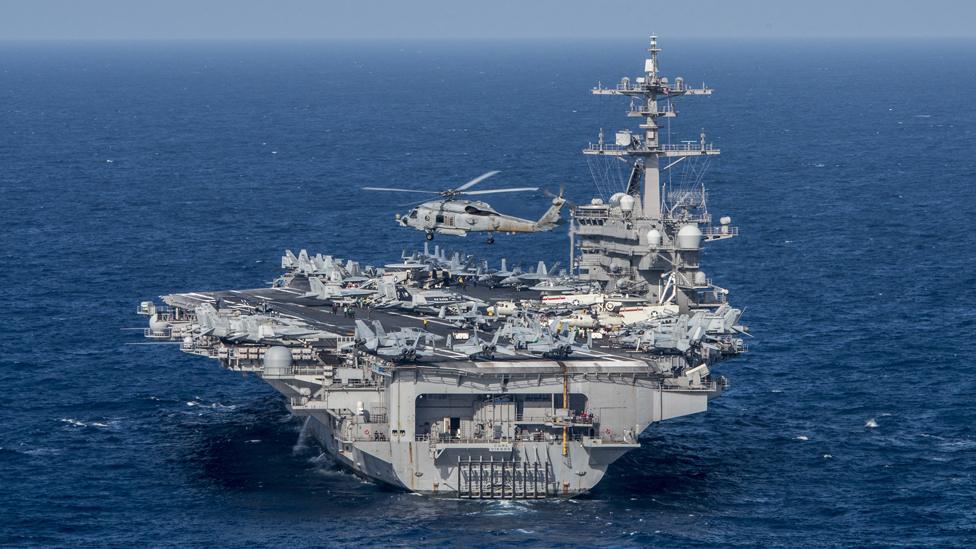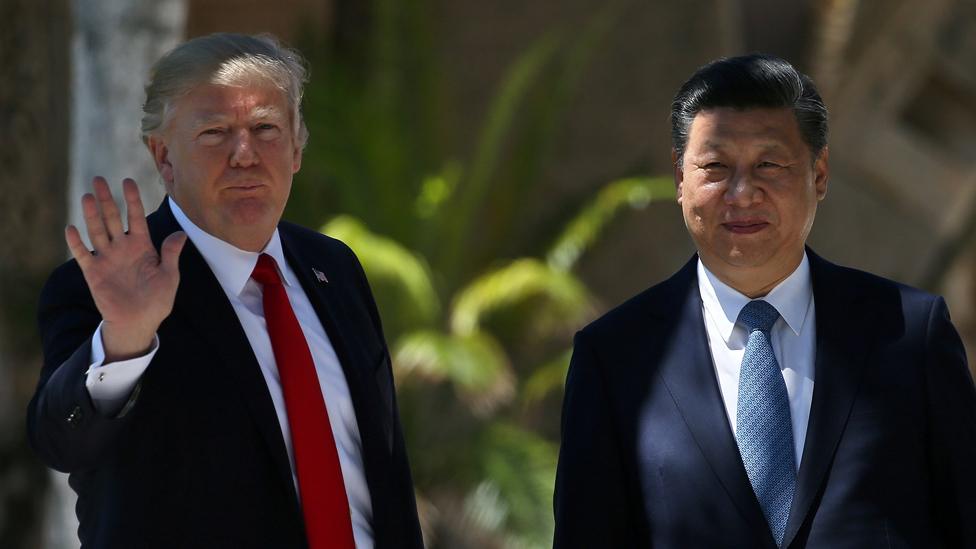Trumplomacy: What's changed between US and N Korea
- Published

After weeks of tough talk and escalating tensions between the US and North Korea, President Donald Trump has referred to the possibility of meeting his opposite number, Kim Jong Un. Let's take a step back and look at how we got here.
What's changed under Trump?
The threat perception: The Americans believe that Pyongyang already has the technology to fire nuclear warheads at Japan and South Korea. And they calculate that it will likely be able to hit the United States within a few years, external.
So North Korea is now seen as a threat to US national security, not only a menace to regional allies. Hence the sense of urgency and resolve.
The rhetoric: Military options have always "been on the table", sometimes more actively than others. But rarely if ever has a US administration been as blunt or outspoken about it. That is largely a factor of President Trump's style but it's also due to growing concern about the imminence of the threat.
The military posturing: Spring is usually a tense time in the Korean Peninsula, because North Korea celebrates a number of patriotic anniversaries that can serve as launch pads for weapons tests, and the US conducts military exercises with Seoul.
But this year the Trump administration added to the firepower on display, including a submarine equipped with guided missiles, and an aircraft carrier group. The confusion over the deployment of the latter, however, may have detracted somewhat from its deterrent effect.

North Korea: Pyongyang has long held that it needs nuclear weapons to guarantee its security, and has been ready to face down international censure and punishment. But Kim Jong Un has shown particular determination and, unlike his father and grandfather, a disregard for the views of his only major ally, China. "Kim Jong Il for all of his sins at least cared what other people thought and particularly cared what the Chinese thought," the former US negotiator Chris Hill told the BBC. "His son Kim Jung Un doesn't seem to care what anyone thinks."
China: China is exasperated by its recalcitrant ally and worried about the growing sophistication of its weapons. It had already begun tightening its implementation of sanctions by following through with the UN's recent ban on coal imports. But it's probably even more worried that Trump's military posturing will escalate tensions, and uneasy about his insistence that Beijing is uniquely positioned to squeeze Pyongyang. In an apparent response to US pressure, Chinese newspapers have published tougher statements about North Korea. There's also been closer coordination between Beijing and Washington.
In a TV interview with CBS, Mr Trump talked about the current tension between the US and North Korea
The Secretary of State Rex Tillerson says Beijing has threatened Pyongyang with unilateral sanctions if it carries out a sixth nuclear test.
What hasn't changed
The options: There are still no good ones.
A pre-emptive military strike on North Korea's nuclear weapons would almost certainly ignite a massive retaliation against South Korea, targeting 10 million civilians in Seoul and 28,000 US soldiers stationed in the country.
UN sanctions haven't worked. They are by nature watered down to achieve consensus, and there are holes in the implementation. The US is pressing for a much stricter "painful" embargo, but it would require the kind of vigilance and coalition building that was used so effectively against Iran.
Talks have been tried before but Pyongyang has generally used them to bargain for aid, and in the end resumed building nuclear warheads. North Korea experts believe it will never give them up, which has been the US pre-condition for negotiations. They see a weapons freeze as a much more realistic approach.
Tillerson says denuclearisation would still be the goal, but he has not been precise about conditions for starting talks.
How do you solve a problem like North Korea?
The strategy: Actually, it has sort of changed and sort of hasn't.
The administration says it has. But the components - pressing for tighter economic sanctions, urging China to lean on its neighbour, and waiting for North Korea to buckle - look a lot like Barack Obama's "strategic patience".
The difference seems to be less patience, a more credible threat of military force, and more coercive diplomacy. Tillerson says the knob on the pressure campaign is at "five or six" right now, with the US "testing" Beijing's ability to influence North Korea, and threatening to sanction parties that violate the UN embargo. Alongside China, the Trump administration is also trying to convince South East Asian nations to isolate North Korea.
China: China may be more willing to turn the screws on Pyongyang, but only so far. There is no sign that it has changed its calculation of North Korea as a buffer state. Beijing fears that if the regime collapses the American security umbrella will be extended across the peninsula right to its borders.
And while North Korea is a dangerous headache, America is its biggest strategic rival. Tillerson's recent assurance that the US is not seeking regime change was aimed as much at Beijing as it was at Pyongyang.

The wild card: Even with a nuclear rogue state, President Trump likes to be unpredictable. And his tactics are those of a deal maker.
Nevertheless observers are struggling to interpret the contrast between his hardline rhetoric and his recent suggestion of a meeting with Kim Jong Un - under the "right circumstances" .
Barack Obama also said during the 2008 election campaign he'd be willing to meet the North Korean leader.
But he did not go on to praise his adversary as did Trump, calling him a "smart cookie" for holding onto power by wiping out his rivals.
It's not clear if the president was deliberately dangling a carrot, making another overture among several to a strongman, or simply throwing an offhand comment into the mix.